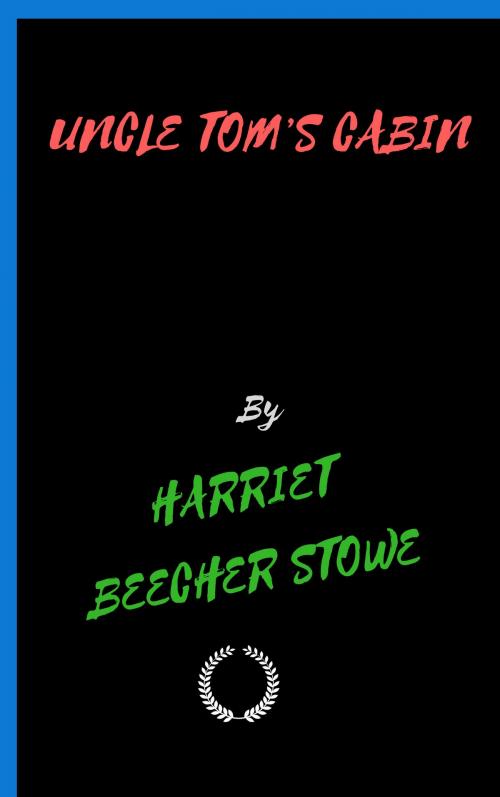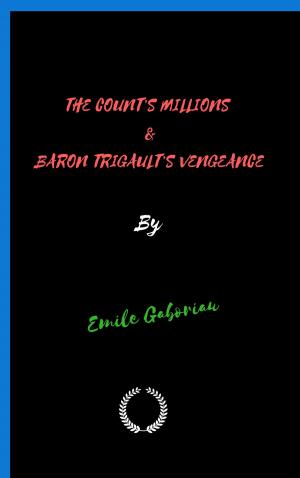UNCLE TOM’S CABIN OR LIFE AMONG THE LOWLY
Fiction & Literature, Action Suspense, Classics, Historical| Author: | HARRIET BEECHER STOWE | ISBN: | 1230002418520 |
| Publisher: | Jwarlal | Publication: | July 9, 2018 |
| Imprint: | Language: | English |
| Author: | HARRIET BEECHER STOWE |
| ISBN: | 1230002418520 |
| Publisher: | Jwarlal |
| Publication: | July 9, 2018 |
| Imprint: | |
| Language: | English |
In Which the Reader Is Introduced to a Man of Humanity
Late in the afternoon of a chilly day in February, two gentlemen were sitting alone over their wine, in a well-furnished dining parlor, in the town of P——, in Kentucky. There were no servants present, and the gentlemen, with chairs closely approaching, seemed to be discussing some subject with great earnestness.
For convenience sake, we have said, hitherto, two gentlemen. One of the parties, however, when critically examined, did not seem, strictly speaking, to come under the species. He was a short, thick-set man, with coarse, commonplace features, and that swaggering air of pretension which marks a low man who is trying to elbow his way upward in the world. He was much over-dressed, in a gaudy vest of many colors, a blue neckerchief, bedropped gayly with yellow spots, and arranged with a flaunting tie, quite in keeping with the general air of the man. His hands, large and coarse, were plentifully bedecked with rings; and he wore a heavy gold watch-chain, with a bundle of seals of portentous size, and a great variety of colors, attached to it,—which, in the ardor of conversation, he was in the habit of flourishing and jingling with evident satisfaction. His conversation was in free and easy defiance of Murray’s Grammar,* and was garnished at convenient intervals with various profane expressions, which not even the desire to be graphic in our account shall induce us to transcribe.
* English Grammar (1795), by Lindley Murray (1745-1826), the
most authoritative American grammarian of his day.
His companion, Mr. Shelby, had the appearance of a gentleman; and the arrangements of the house, and the general air of the housekeeping, indicated easy, and even opulent circumstances. As we before stated, the two were in the midst of an earnest conversation.
“That is the way I should arrange the matter,” said Mr. Shelby.
“I can’t make trade that way—I positively can’t, Mr. Shelby,” said the other, holding up a glass of wine between his eye and the light.
“Why, the fact is, Haley, Tom is an uncommon fellow; he is certainly worth that sum anywhere,—steady, honest, capable, manages my whole farm like a clock.”
“You mean honest, as niggers go,” said Haley, helping himself to a glass of brandy.
“No; I mean, really, Tom is a good, steady, sensible, pious fellow. He got religion at a camp-meeting, four years ago; and I believe he really did get it. I’ve trusted him, since then, with everything I have,—money, house, horses,—and let him come and go round the country; and I always found him true and square in everything.”
“Some folks don’t believe there is pious niggers Shelby,” said Haley, with a candid flourish of his hand, “but I do. I had a fellow, now, in this yer last lot I took to Orleans—‘t was as good as a meetin, now, really, to hear that critter pray; and he was quite gentle and quiet like. He fetched me a good sum, too, for I bought him cheap of a man that was ’bliged to sell out; so I realized six hundred on him. Yes, I consider religion a valeyable thing in a nigger, when it’s the genuine article, and no mistake.”
“Well, Tom’s got the real article, if ever a fellow had,” rejoined the other. “Why, last fall, I let him go to Cincinnati alone, to do business for me, and bring home five hundred dollars. ‘Tom,’ says I to him, ‘I trust you, because I think you’re a Christian—I know you wouldn’t cheat.’ Tom comes back, sure enough; I knew he would. Some low fellows, they say, said to him—Tom, why don’t you make tracks for Canada?’ ’Ah, master trusted me, and I couldn’t,’—they told me about it. I am sorry to part with Tom, I must say. You ought to let him cover the whole balance of the debt; and you would, Haley, if you had any conscience.”
“Well, I’ve got just as much conscience as any man in business can afford to keep,—just a little, you know, to swear by, as ’t were,” said the trader, jocularly; “and, then, I’m ready to do anything in reason to ’blige friends; but this yer, you see, is a leetle too hard on a fellow—a leetle too hard.” The trader sighed contemplatively, and poured out some more brandy.
In Which the Reader Is Introduced to a Man of Humanity
Late in the afternoon of a chilly day in February, two gentlemen were sitting alone over their wine, in a well-furnished dining parlor, in the town of P——, in Kentucky. There were no servants present, and the gentlemen, with chairs closely approaching, seemed to be discussing some subject with great earnestness.
For convenience sake, we have said, hitherto, two gentlemen. One of the parties, however, when critically examined, did not seem, strictly speaking, to come under the species. He was a short, thick-set man, with coarse, commonplace features, and that swaggering air of pretension which marks a low man who is trying to elbow his way upward in the world. He was much over-dressed, in a gaudy vest of many colors, a blue neckerchief, bedropped gayly with yellow spots, and arranged with a flaunting tie, quite in keeping with the general air of the man. His hands, large and coarse, were plentifully bedecked with rings; and he wore a heavy gold watch-chain, with a bundle of seals of portentous size, and a great variety of colors, attached to it,—which, in the ardor of conversation, he was in the habit of flourishing and jingling with evident satisfaction. His conversation was in free and easy defiance of Murray’s Grammar,* and was garnished at convenient intervals with various profane expressions, which not even the desire to be graphic in our account shall induce us to transcribe.
* English Grammar (1795), by Lindley Murray (1745-1826), the
most authoritative American grammarian of his day.
His companion, Mr. Shelby, had the appearance of a gentleman; and the arrangements of the house, and the general air of the housekeeping, indicated easy, and even opulent circumstances. As we before stated, the two were in the midst of an earnest conversation.
“That is the way I should arrange the matter,” said Mr. Shelby.
“I can’t make trade that way—I positively can’t, Mr. Shelby,” said the other, holding up a glass of wine between his eye and the light.
“Why, the fact is, Haley, Tom is an uncommon fellow; he is certainly worth that sum anywhere,—steady, honest, capable, manages my whole farm like a clock.”
“You mean honest, as niggers go,” said Haley, helping himself to a glass of brandy.
“No; I mean, really, Tom is a good, steady, sensible, pious fellow. He got religion at a camp-meeting, four years ago; and I believe he really did get it. I’ve trusted him, since then, with everything I have,—money, house, horses,—and let him come and go round the country; and I always found him true and square in everything.”
“Some folks don’t believe there is pious niggers Shelby,” said Haley, with a candid flourish of his hand, “but I do. I had a fellow, now, in this yer last lot I took to Orleans—‘t was as good as a meetin, now, really, to hear that critter pray; and he was quite gentle and quiet like. He fetched me a good sum, too, for I bought him cheap of a man that was ’bliged to sell out; so I realized six hundred on him. Yes, I consider religion a valeyable thing in a nigger, when it’s the genuine article, and no mistake.”
“Well, Tom’s got the real article, if ever a fellow had,” rejoined the other. “Why, last fall, I let him go to Cincinnati alone, to do business for me, and bring home five hundred dollars. ‘Tom,’ says I to him, ‘I trust you, because I think you’re a Christian—I know you wouldn’t cheat.’ Tom comes back, sure enough; I knew he would. Some low fellows, they say, said to him—Tom, why don’t you make tracks for Canada?’ ’Ah, master trusted me, and I couldn’t,’—they told me about it. I am sorry to part with Tom, I must say. You ought to let him cover the whole balance of the debt; and you would, Haley, if you had any conscience.”
“Well, I’ve got just as much conscience as any man in business can afford to keep,—just a little, you know, to swear by, as ’t were,” said the trader, jocularly; “and, then, I’m ready to do anything in reason to ’blige friends; but this yer, you see, is a leetle too hard on a fellow—a leetle too hard.” The trader sighed contemplatively, and poured out some more brandy.















